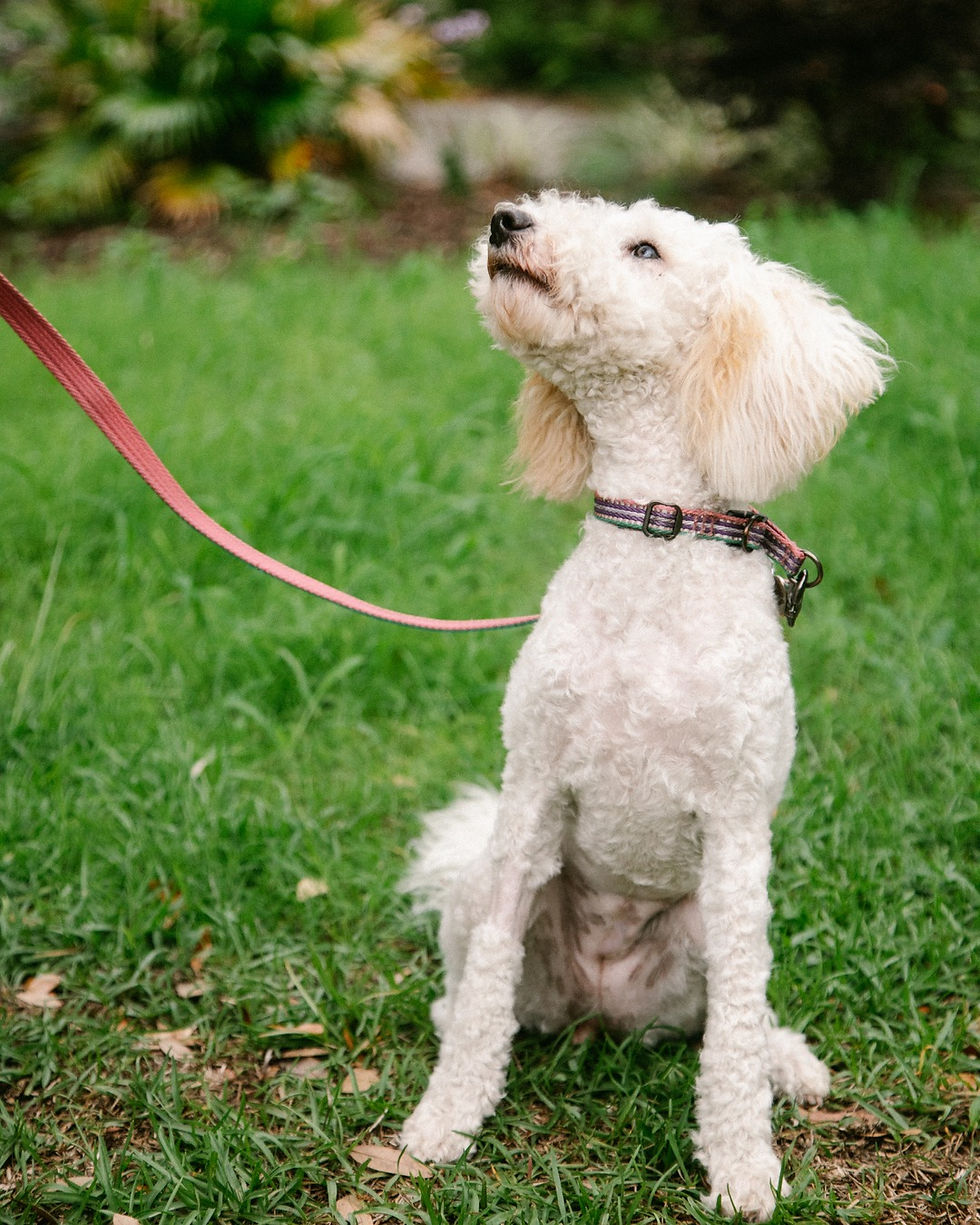Puppy Personalities: Nature vs. Nurture - Which One Wins?
- JennaLeeDesignerDoodles
- Jun 22, 2022
- 5 min read
Updated: Jul 17, 2022
They say to never judge a book by its cover. When it comes to dogs, that turn of phrase is one we ignore. We expect our dogs to have certain attitudes and capabilities based on their breeds. And there are many shades of pup, each more desirable than the last.
But should we keep this at the forefront of how we see our furry friends?

There’s new science that could change the way we consider puppy pedigrees… Will how you train and raise your dog determine how they will act? Or will their base urges take hold and make them do something different?
Old School Thinking
Forever, people have assumed that certain dog breeds will act in very specific ways. If you have an English Springer Spaniel, they’re a sweet-faced, lovable bird dog of great energy, stamina, and brains.
Or so sayeth the American Kennel Club. Anyone who has owned one of these dogs could have had a different experience.
For the most part, this thought process isn’t a terrible one. When you select a dog, the breed of the dog should be the first consideration. Dogs of certain breeds will learn at similar speeds, will react the same way to certain stimuli and will have a predetermined set of abilities and needs.
But in the end, does this thinking really stand up to scientific analysis? Let’s check to see.
What Does Science Say About DNA & Behavior / Personality?
A research article published by Science.org has something new to say concerning preconceived notions about how your dog will act based on their breed. The simple abstract of the study is this: While the DNA of most dogs manifested certain physical traits within a breed, their behavior was far more varied.
To put this in context, some creatures have something called genetic memory. Salmon, for example, will swim upstream simply to lay their eggs and perpetuate the species. Birds migrate south during the winter months. There is an ancestral imperative to complete these tasks.
But do dogs fall under this same umbrella? Is each breed born with these same impulses to behave in certain ways?
This new research advises that pre-19th Century, dogs weren’t bred for their looks, but for what they could do for their masters. “Hunting, guarding, and herding” were all tasks that would be required of certain breeds. Now, it’s more common for a dog to be bred for their looks; more about physical appearance and not a daily to-do list.
Heritability vs environmental factors plays a key role in the development of your canine. If you treat your pup a certain way, they will, in most cases, respond the way in which you’ve trained them. But that genetic code could rear its ugly head and you’re off to the proverbial races.
Ryan Scott Patton of Khan Academy explains that "The environment plays a major role in turning on or off active or inactive genes" by the example of a tea bag.
When sitting apart from water, contained in its little pouch, there is the ability and potential to become something more but it's not until the interaction with hot water that it's actually expressed and the amount of time subjected to the stimulus yields differing results on aroma and color and flavor of a tea.
In short, it’s a little bit of both. Dogs have this same biological wiring. While you might expect a certain outcome, this won’t always be the case because their primeval drive could override whatever you’ve taught them.
Should We Take Issue With This Science about Dog Personalities?
You could. Unlike clinical trials in humans, this research could be considered anecdotal. The researchers built a system called Darwin’s Ark so that owners could report their dog’s actions and “complex behavioral traits” along with how they’re informed by genetics.
The system had a gigantic sample size -- nearly 19,000 in total. While the list of dog breeds and dog owners seems to be endless, it would be up to you to determine whether the science stacks up. What are your experiences with your pup? Do you have the same outcomes with the same breed time and time again?
While the information provided by the owners covered behavior, the genetic sequencing of a couple thousand of this larger sample size may tell a more detailed story. In the end, you could question the science, but it appears they’ve done their due diligence to simplify a much more complex topic so they can convey this to the public.
How Should We Approach a Dog’s Behavior Now?

Not much has changed. At least if you were in the right mindset, to begin with. We’ll use our process as an example.
We monitor the development of our puppies. Not only for their health, as important as that is, but for the maturation of each and every individual personality trait. As this progresses, we update our new “paw”-rents.
We do this so we don’t experience their growth in a vacuum. We share this so you can prepare for their arrival into your home as part of your “fur”-ever families.
We know that, from day one, it’s important to monitor and adapt to attitude changes in your puppy. While the blueprints of their DNA can preestablish certain variables, you can still have a hand in how your dog sees the world. Guide them toward being a loving and understanding adult.
How Can We Mold Our Dog's Behavior & Personality?
Can dogs change and buck the trend? Ask yourself a similar question. Could you, with the proper training and tools, change who you are? Despite being bred to maintain a certain trait, dogs have the ability and wherewithal to change. Just like their human parents.
All dogs aren't a lump of clay ready to be molded, but more of a painted palate, ready to be added upon. Certain characteristics are demonstrated in the parent breeds and passed on to their offspring. This much we know. While how intelligent each breed is may be fixed and preset, how they’ll react to you giving them treats or addressing them with a stern hand is still learned behavior.
While dogs may not be able to alter their predisposed genetic characteristics, such as aggression in hunting breeds, they may bow to their owner's kind hand. In other words, no matter what breed, be loving and caring with your dog and they’ll return that same affection a thousandfold.
How Do Doodles Stack up With This Personality Science?
The same science from this research applies to mixed breeds like the superb Doodle. While 49% of this cross-section were purebred, the other 51% were not. Everything holds true here just as it would for other dogs.
While individual behaviors in Doodles will generally not be determined by their parents, their ancestry can still play an active part in the puppy's life day to day. If you want to know how early we believe you can tell a puppy's temperament, check out our blog on that here.
While this research might not be anything new, it does reframe some of what we’ve known for decades. While your puppy will be capable of certain things, thanks to who they are in their DNA, you are just as important as to how they’ll act and react to their surroundings on a daily basis. They are like your children, after all!
Jenna and the JLDD Team








akun5000, slot qris, akun5000, slot dana, slot deposit dana, slot gacor, slot gacor, akun5000, slot qris, slot qris tanpa potongan,
akun5000, toto slot, slot dana tanpa potongan, akun5000, akun5000, slot deposit qris, slot deposit dana, slot gacor, slot gacor, akun5000,
akun5000, akun5000, slot gacor, akun5000, akun5000, slot dana, toto slot, slot,
google seo…
03topgame 03topgame;
gamesimes gamesimes;
Fortune Tiger…
Fortune Tiger…
Fortune Tiger…
EPS Machine…
EPS Machine…
seo seo;
betwin betwin;
777 777;
slots slots;
Fortune Tiger…
seo优化 SEO优化;
bet bet;
google seo…
03topgame 03topgame
gamesimes gamesimes;
Fortune Tiger…
Fortune Tiger…
Fortune Tiger…
EPS машины…
Fortune Tiger…
EPS Machine…
EPS Machine…
EPP Machine…
EPS Machine…
EPTU Machine…
EPS Machine…
seo seo